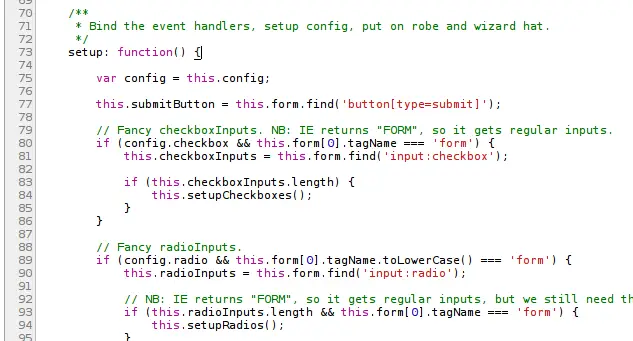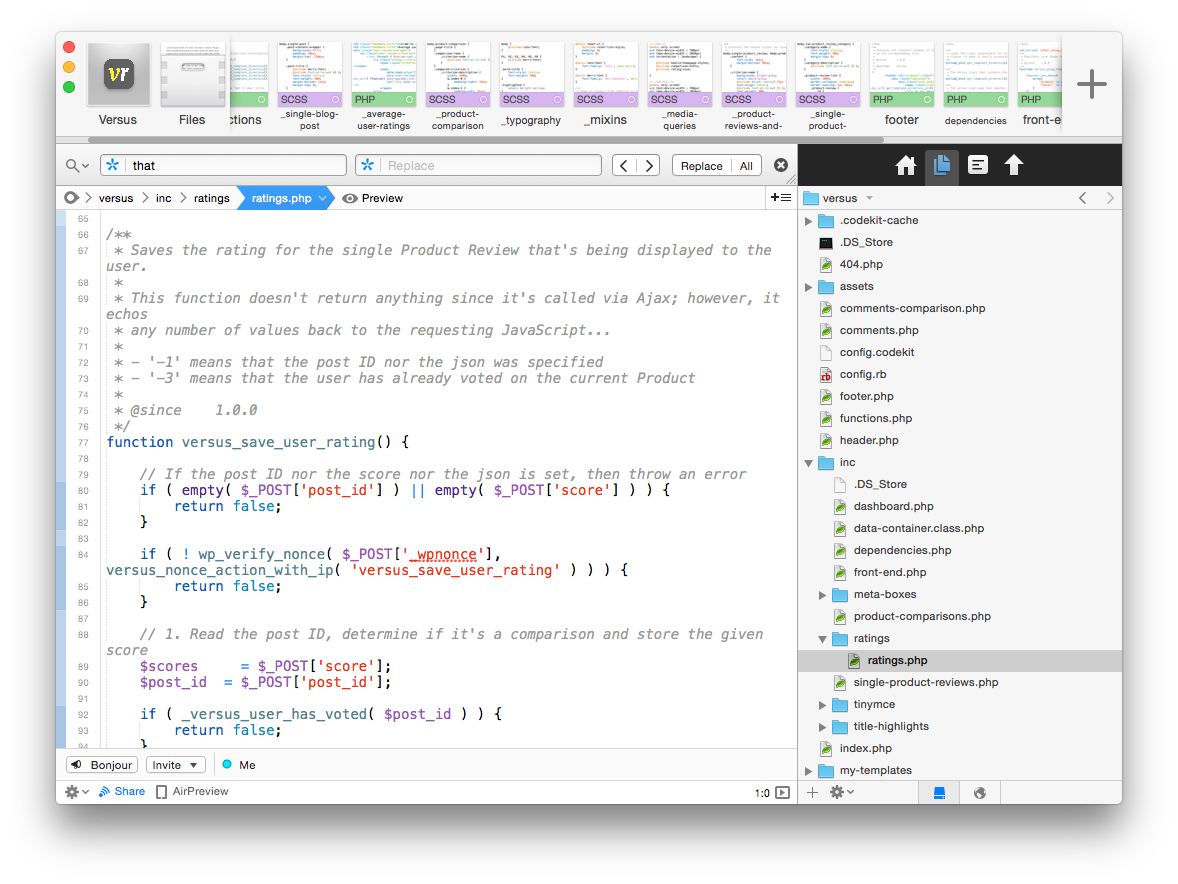The Art of Commenting Code: When, Why, and How

Writing effective comments is an essential part of software development. Well-written comments can make your code easier to understand, maintain, and debug. They can also help you communicate with other developers who may be unfamiliar with your code.

When to Comment Code

There are many different times when you should consider adding comments to your code. Some common examples include:
- To explain complex or difficult code. If you have a section of code that is particularly complex or difficult to understand, it is helpful to add a comment explaining what the code is doing and why. This will make it easier for other developers to understand your code and make changes in the future.
- To document the purpose of a function or method. Every function or method should have a comment that describes its purpose and how it should be used. This will help other developers understand how to use your code correctly.
- To track changes to your code. If you make a significant change to your code, it is helpful to add a comment explaining what the change is and why it was made. This will help other developers understand the history of your code and make it easier to revert to a previous version if necessary.
Why Comment Code
There are many benefits to commenting your code, including:
- Improved readability: Comments can make your code easier to read and understand. This can save you time when you are trying to debug your code or make changes in the future.
- Reduced maintenance costs: Well-commented code is easier to maintain. This can save you money in the long run by reducing the amount of time you spend debugging and fixing errors.
- Improved communication: Comments can help you communicate with other developers who may be unfamiliar with your code. This can make it easier to collaborate on projects and share knowledge.
How to Comment Code
There are a few general guidelines to follow when writing comments:
- Be concise: Your comments should be concise and to the point. Avoid writing long, rambling comments that are difficult to read and understand.
- Be clear: Your comments should be clear and easy to understand. Use simple language and avoid technical jargon.
- Be consistent: Use a consistent style for your comments. This will make your code more readable and easier to understand.
- Be specific: Your comments should be specific and relevant to the code they are describing. Avoid writing general or vague comments that do not add any value.
By following these guidelines, you can write effective comments that will improve the readability, maintainability, and communication of your code.## The Art Of Commenting Code: When, Why, And How
Executive Summary
Code commenting is a fundamental aspect of software development that enhances the readability, maintainability, and comprehensibility of code. A well-commented codebase serves as a roadmap for developers, fostering better collaboration, faster debugging, and reduced technical debt. Understanding the principles and best practices of code commenting is crucial for building robust and long-lasting software.
Introduction
Code commenting is the art of incorporating descriptive annotations into the source code to explain its intent, functionality, and structure. It helps other developers, including the future self, understand the purpose and implementation of code without diving deeply into its technical details. By effectively commenting code, programmers create a self-documenting codebase that facilitates efficient code comprehension, debugging, and collaborative development.
When to Comment Code
- Complex Algorithms and Edge Cases: Elaborate algorithms or specific edge cases require detailed explanations to clarify their behavior and decision-making process.
- Non-Obvious Functionality: Code that performs non-intuitive or unexpected tasks requires comments to justify its implementation and guide the reader’s understanding.
- Reused or Generic Code: Reusable code snippets or generic functions should be accompanied by comments explaining their purpose, intended use, and any limitations.
- Code Refactorings: Significant code refactorings warrant comments to clarify the reasons behind the changes, especially if they alter the code’s behavior or structure.
- Assumptions and Constraints: Comments are essential for documenting any underlying assumptions or constraints on the code’s inputs, outputs, or dependencies.
Why Comment Code
- Enhanced Readability and Understanding: Comments improve the readability of code, making it easier for developers to understand its functionality and structure.
- Efficient Debugging: Descriptive comments provide context and insights during debugging, reducing the time and effort required to identify and resolve issues.
- Improved Collaboration: Well-commented code facilitates collaboration among developers, allowing them to quickly grasp the code’s purpose and implementation.
- Reduced Technical Debt: Clear and concise comments prevent misunderstandings, minimizing the accumulation of technical debt and ensuring codebase longevity.
- Code Reuse and Modification: Comments enable developers to reuse and modify code with confidence, as they can easily understand the intent and functionality of the code.
How to Comment Code
- Use Standard Comment Styles: Adopt consistent commenting syntax across the codebase using established standards like JavaDoc, Doxygen, or specific linting tools.
- Write Clear and Concise Comments: Avoid using vague or ambiguous language. Keep comments concise and precise, focusing on conveying essential information succinctly.
- Document Purpose and Context: Comments should explain the purpose of code blocks, functions, and classes, as well as their context within the broader codebase.
- Explain Complex Algorithms: For complex algorithms, break down their steps into smaller, understandable units, and use comments to illustrate the logic and flow of the algorithm.
- Document Assumptions and Constraints: Clearly state any assumptions or constraints regarding the code’s inputs, outputs, or dependencies to avoid errors or unexpected behaviors.
Conclusion
Mastering the art of commenting code is a crucial skill for software developers. By adhering to best practices and principles, programmers create code that is not only functional but also self-documenting, fostering better collaboration, reducing maintenance costs, and ensuring codebase longevity. By taking the time to write clear and meaningful comments, developers invest in the future understandability, reliability, and maintainability of their software.
Keyword Tags
- Code commenting
- Software development
- Readability
- Maintainability
- Collaboration
FAQs
-
How often should I comment code?
- Comment whenever there is non-obvious functionality, complex algorithms, or important assumptions and constraints.
-
What style of comments should I use?
- Adopt a standardized comment style and adhere to it consistently across the codebase.
-
Can I over-comment code?
- Excessive or unnecessary comments can be counterproductive. Aim for concise yet informative comments.
-
What should I comment on?
- Focus on explaining the intent, functionality, and context of code, including assumptions, constraints, and important implementation details.
-
Who benefits from code commenting?
- All developers working on the codebase benefit, including the original author, future contributors, and reviewers during code maintenance and troubleshooting.


This post raises intriguing questions about the importance of code commenting. I find the arguments presented thought-provoking and would appreciate more insights into the best practices for effective commenting.
While the article acknowledges the potential benefits of code commenting, it seems to oversimplify the matter. The decision of whether or not to comment should be carefully considered, as excessive or poorly written comments can actually hinder code readability.
I wholeheartedly agree with the importance of code commenting! Well-written comments not only make code more readable but also serve as valuable documentation for future maintenance and collaboration.
I’m not sure if I fully understand the article’s stance on the frequency of commenting. It suggests that every line of code should be commented, but that seems excessive. Could you provide clarification on when commenting is essential and when it can be omitted?
The article makes a compelling case for code commenting, but I can’t help but wonder if we’re not all just writing comments for our future selves to unravel the mysteries of our past coding adventures! 😉
Oh wow, another article on the importance of code commenting. Way to break new ground. If only there was some way to make code more readable without all this pesky documentation…
The article provides a comprehensive overview of the benefits and considerations of code commenting. It effectively highlights the importance of clear and concise comments, which can significantly enhance code maintainability and collaboration.
I appreciate the discussion on the potential drawbacks of excessive commenting. It’s true that overly verbose or unnecessary comments can clutter the code and make it more difficult to navigate. Finding the right balance is crucial.
Code commenting isn’t just a technical practice; it’s an art form! When done well, it transforms code into a beautiful symphony of clarity and understanding. Let’s embrace the power of comments!
While the article emphasizes the importance of commenting, it fails to address the potential security risks associated with excessive or poorly written comments. Comments can inadvertently reveal sensitive information or provide loopholes for attackers.
Code commenting: the art of writing down what you did so future programmers can wonder why you did it in the first place. But hey, at least it’s a good way to kill time when you’re procrastinating on actual coding!
The effectiveness of code commenting depends not only on the quality of the comments but also on the development environment and team culture. A systematic approach to commenting, coupled with automated tools for comment generation and enforcement, can significantly enhance code readability and maintenance.